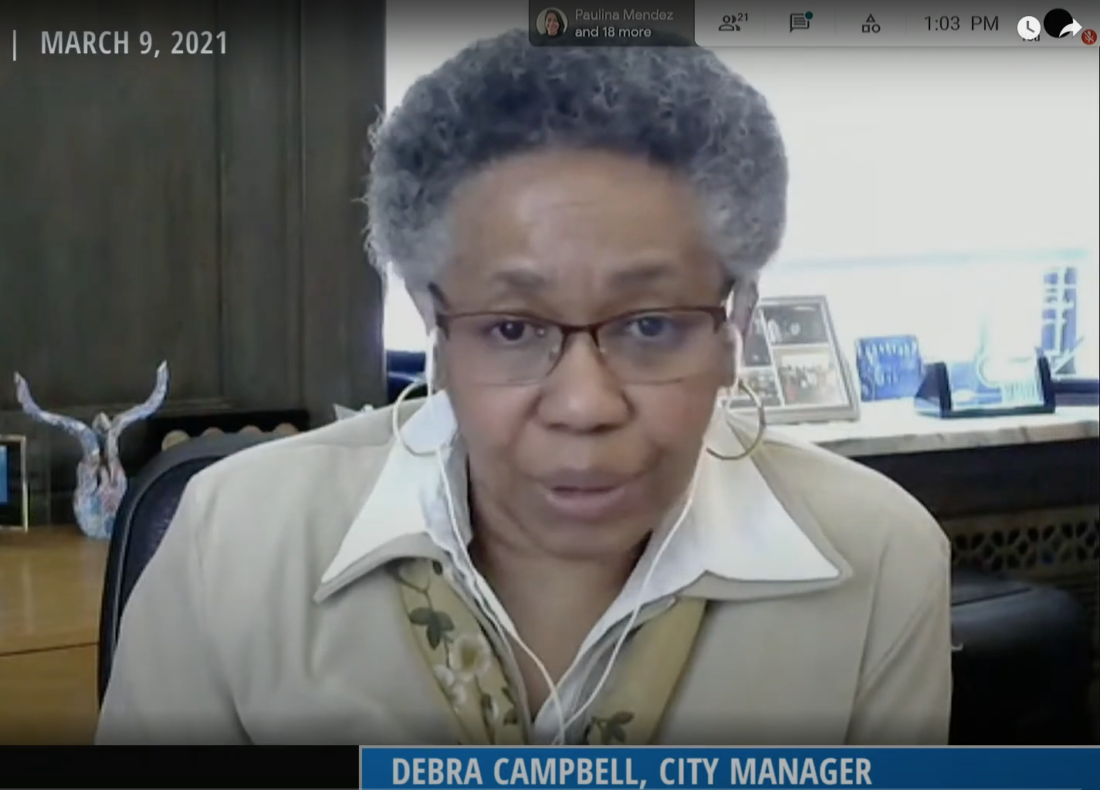There’s no rest for the weary, especially for those crafting Asheville’s annual operating budget. After wrapping up the 2020-21 budget process in late September — nearly three months after the official start of the fiscal year — Asheville City Council and city staffers are back at work to allocate funds for the 2021-22 cycle.
Council members met on March 9 for the first of three budget work sessions scheduled through mid-April. This year, the city plans to approach the process a little differently, explained City Manager Debra Campbell.
Instead of just crunching the numbers for revenue and spending — which may be on the rise thanks to better-than-expected sales tax receipts and higher county property values, said interim Chief Financial Officer Tony McDowell — the city will focus on how equitably existing services are delivered.
To do so, Asheville has contracted with Shemekka Ebony of #IAmBrilliant and Christine Edwards of Charlotte-based Amplify Consulting to host six “equity-focused budget engagement” sessions for community members. The pair previously facilitated the city’s “Reimagining Public Safety” engagement efforts in the fall, a process that drew comment from nearly 5,800 residents through virtual listening sessions and an online survey.
The first round of conversations will build on that previous work and give community members the chance to offer feedback, Ebony told Council. “First, we’ll bring what we heard and take it back to the community, asking if we got it right or if pieces were still missing,” she said. During the second phase, “we’ll go back and mend and adapt what’s on the drawing board.”
While staffers said it was still too early in the process to present firm numbers, other priorities for the upcoming budget include bolstering programs that were scaled back during the pandemic, public transit expansion, funding for reparations and pay raises for city employees in line with recommendations outlined in a recent compensation study.
That study, conducted by the South Carolina-based Archer Co., found the city’s pay structure was “below the market average on all key comparisons.” To reach the new minimum pay rates outlined in the study would cost $4.5 million; to give raises to employees currently above the pay grade minimum, thereby preserving differences between low- and high-wage workers, would add an additional $3.3 million. Council could make all salary adjustments at once or implement a phased approach over two years.
Community engagement around the budget usually peaks at the end of the process, Mayor Esther Manheimer told her colleagues at the end of the work session, but it’s important for Council to incorporate community feedback in the early steps of the process.
“It’s really important we don’t wake up two weeks before the deadline and say, ‘I want to turn this on its head,’” she said. “Turning on a dime is very difficult. It’s good to give as much direction as you can, as early as you can.”
The first community engagement session will be held virtually on Thursday, March 18, at 6 p.m. Council will reconvene for its next budget work session, at which public comment will not be accepted, on Tuesday, March 23. The final budget is currently slated for approval on Tuesday, June 22.




What’s the city budget meetings link?
Hi Frances. All of the links to the city’s budget meetings can be found at https://publicinput.com/21241/. If you scroll down on the website, you can find links to watch Asheville City Council’s budget work session and to register for the upcoming community engagement sessions. I hope this helps!